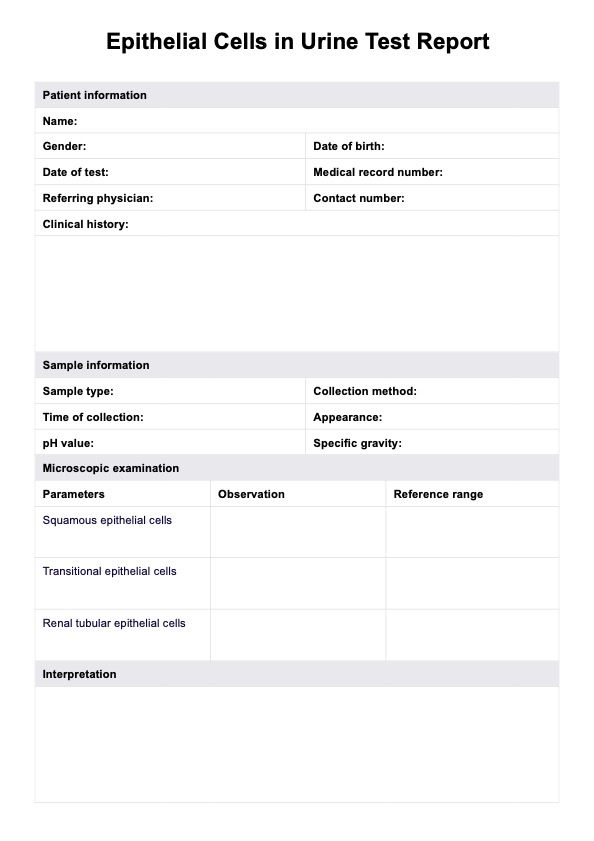An epithelial cells in urine test may be ordered during a routine checkup or if initial urine tests show abnormalities. It's commonly used to investigate symptoms of urinary or kidney disorders, such as frequent or painful urination, abdominal pain, back pain, or blood in the urine.

Epithelial Cells in Urine Test Reports
Learn about Epithelial Cells in Urine Tests and use our free report template to document findings. Get the PDF template here.
Epithelial Cells in Urine Test Reports Template
Commonly asked questions
Typically, no special preparations are required, but if other urine or blood tests are being taken, it is sometimes necessary to fast for several hours beforehand. It also may be necessary to stop taking certain medications. Consulting with a medical professional is essential to determine any specific instructions required for the test.
The test is performed by collecting a clean-catch urine sample. This involves using a sterile container to capture midstream urine, which minimizes contamination. The sample is then sent to a laboratory, where it is analyzed under a microscope to check for the presence and quantity of epithelial cells.
EHR and practice management software
Get started for free
*No credit card required
Free
$0/usd
Unlimited clients
Telehealth
1GB of storage
Client portal text
Automated billing and online payments











